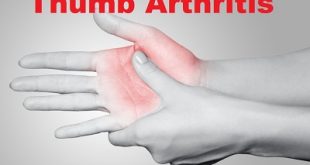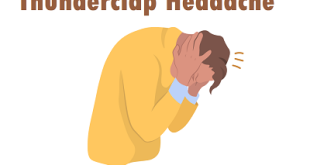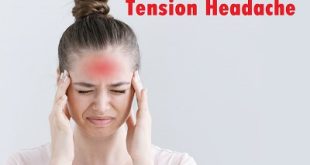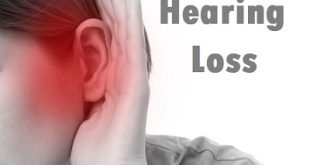Definition
Tinnitus is a condition where the person has the perception of a constant ringing sensation within the ears without the presence of any actual external factors. The continuous discomfort in the ears can be in any form like buzzing, hissing, clicking etc. The feeling can either be temporary or chronic and continuous.
The ringing or buzzing noise can sometimes be just a feeling in the head or in either of your ears giving a sense of hallucinating the noise and hence sometimes denoted as ‘phantom sounds’. Though this isn’t a true psychotic disease, continuous buzzing can lead to discomfort causing psychological and emotional stress and anxiety, disrupting daily life and social surroundings. Although it isn’t a disease but can be quite a bothersome underlying symptom or an adverse effect due to ear injury, age-related hearing loss, or a circulatory system disorder.
The phantom sounds heard by a suffering person varies from a low squeak to a high squeal or roar. It can happen in one or both ears and can sometimes be so loud that it may interfere with the ability to concentrate or hear normal sounds.
Prevalence
The U.S. Centers for Disease Control estimates that nearly 15% of the general public over 50 million Americans experience some form of tinnitus. Roughly 20 million people struggle with chronic tinnitus, while two million have extreme and debilitating cases.
Types of Tinnitus
Different types are as follows:
Subjective tinnitus: This is the most common type because you hear a sound, but no one else can hear it.
Neurological tinnitus: Usually caused by a disorder, such as Meniere’s disease, that primarily affects the brain’s auditory functions.
Clicking or pulsatile tinnitus: The noise it produces usually is a buzzing or ringing type sound, but it may be a clicking or rushing sound that goes along with your heartbeat.
Objective tinnitus: This is a much more uncommon sort of tinnitus. With this type your doctor may sometimes actually hear a sound when he or she is carefully listening for it.
Tinnitus risk factors
Anyone can experience tinnitus, but these factors may increase your risk:
Loud noise exposure: Prolonged exposure to loud noise can damage the tiny sensory hair cells in your ear that transmit sound to your brain. People who work in noisy environments such as factory and construction workers, musicians, and soldiers are particularly at risk.
Age: As you age, the number of functioning nerve fibers in your ears declines, possibly causing hearing problems often associated with tinnitus.
Sex: Men are more likely to experience tinnitus.
Smoking: Smokers have a higher risk of developing tinnitus.
Cardiovascular problems: Conditions that affect your blood flow, such as high blood pressure or narrowed arteries (atherosclerosis), can increase your risk of tinnitus.
Causes of Tinnitus
It can develop gradually over time or occur suddenly. It’s not clear exactly why it happens, but it often occurs along with some degree of hearing loss.
Tinnitus is often associated with:
- Age-related hearing loss
- Inner ear damage caused by repeated exposure to loud noises
- An earwax build-up
- A middle ear infection
- Ménière’s disease – a condition that also causes hearing loss and vertigo (a spinning sensation)
- Otosclerosis – an inherited condition where an abnormal bone growth in the middle ear causes hearing loss
- Common ailments – Having anemia, allergies, high blood pressure, cardiovascular disease, circulatory problems, diabetes and an underactive thyroid gland are all medical conditions that can lead to tinnitus.
However, around one in every three people with tinnitus doesn’t have any obvious problem with their ears or hearing.
Other medical causes of tinnitus
Symptoms
People who have tinnitus report a variety of noises in the ears, including:
- Ringing
- Buzzing
- Roaring
- Clicking
- Pulsing
- Whistling
- Hissing
It may be present all of the time, or may come and go, and may affect one or both ears.
Other problems that may be associated with this (depending on the cause) include:
- Hearing loss
- Hyperacusis (extreme sensitivity to sounds and loud noises)
- Ear pain
- Vertigo
Complications
Left untreated, it can interfere with and potentially diminish your quality of life. It can disrupt sleep and work, and cause you undue stress, anxiety, and depression. In addition, tinnitus may be a symptom of a serious condition, such as head injury or blood vessel disease, which may lead to serious, even life-threatening complications. Once the underlying cause is diagnosed, it is important to follow the treatment plan that you and your health care provider design specifically for you.
Complications of untreated or its underlying causes, such as head trauma or blood vessel diseases, include:
- Adverse effects of treatment
- Brain damage
- Difficulty performing daily tasks
- Difficulty sleeping
- Mood changes, such as anxiety, depression and stress
- Progressive hearing loss
- Spread of cancer
- Spread of infection
Diagnosis and test
Visual Analogue Scale
The patient is asked to rate the loudness of the internal noise in the ear on the scale of 0 – 10. The patients perceive their ringing-in-the-ear sound louder than it is, due to subjective tinnitus. Checking the loudness on the decibel scale of 0-10 helps the doctors to understand the severity of the tinnitus.
Audiometry
To assess the hearing of the patient. If there is a hearing loss – the type of hearing loss and its severity is gauged.
Tinnitus Matching
Sounds with different pitches are played to the patients and are asked to select the close one in the set that resembles the sound they experience in the ear. The recognition of a pitch that is closely similar to the one that the patient hears in his ear helps the doctors understand the frequency level of tinnitus in the patient.
Loudness Match Test
The patient is asked to match the intensity of sound they hear in their ear. The test aids the doctors in understanding the range of the sound of tinnitus in a patient.
Impedance Audiometry with Eustachian Tube Function Tests
These should be done to determine middle ear pressure, stapedial reflexes and ET function.
Treatment
It does not have a cure yet, but treatments that help many people cope better with the condition are available. Most doctors will offer a combination of the treatments below, depending on the severity and the areas of your life it affects the most.
Hearing aids often are helpful for people who have hearing loss along with tinnitus. Using a hearing aid adjusted to carefully control outside sound levels may make it easier for you to hear. The better you hear, the less you may notice your tinnitus. Read the NIDCD fact sheet Hearing Aids for more information.
A masking device makes a low-level sound. It helps you to ignore the tinnitus and fall asleep. Listening to radio static at low volume also can help.
Wearable sound generators are small electronic devices that fit in the ear and use a soft, pleasant sound to help mask the tinnitus. Some people want the masking sound to totally cover up their tinnitus, but most prefer a masking level that is just a bit louder than their tinnitus. The masking sound can be a soft “shhhhhhhhhhh,” random tones, or music.
Tabletop sound generators are used as an aid for relaxation or sleep. Placed near your bed, you can program a generator to play pleasant sounds such as waves, waterfalls, rain, or the sounds of a summer night. If your tinnitus is mild, this might be all you need to help you fall asleep.
Acoustic neural stimulation is a relatively new technique for people whose tinnitus is very loud or won’t go away. It uses a palm-sized device and headphones to deliver a broadband acoustic signal embedded in music. The treatment helps stimulate change in the neural circuits in the brain, which eventually desensitizes you to the tinnitus. The device has been shown to be effective in reducing or eliminating tinnitus in a significant number of study volunteers.
Cochlear implants are sometimes used in people who have tinnitus along with severe hearing loss. A cochlear implant bypasses the damaged portion of the inner ear and sends electrical signals that directly stimulate the auditory nerve. The device brings in outside sounds that help mask tinnitus and stimulate change in the neural circuits. Read the NIDCD fact sheet Cochlear Implants for more information.
Antidepressants and antianxiety drugs might be prescribed by your doctor to improve your mood and help you sleep.
Other medications may be available at drugstores and on the Internet as an alternative remedy for tinnitus, but none of these preparations has been proved effective in clinical trials.
Medications
Benzodiazepine medications, including alprazolam (Xanax), may help suppress nerve function and decrease tinnitus symptoms.
Corticosteroid injections into the middle ear may decrease inflammation in certain cases of tinnitus.
Antidepressant medications may decrease the intensity of tinnitus or resolve the noise altogether. Moreover, antidepressants may also help with the depression that is sometimes associated with the presence of persistent and chronic tinnitus.
Prostaglandin analogues, such as misoprostol (Cytotec), may be of some help in some people with tinnitus.
Prevention of Tinnitus
You may be able to prevent ringing in the ears if you:
- Limit or avoid exposure to loud noises, such as music, power tools, gunshots, and industrial machinery.
- Wear protective earplugs or earmuffs if you cannot avoid loud noises. Do not use wadded-up tissue or cotton balls. These do not protect adequately against loud noises, especially the more dangerous high frequencies, and they may become lodged in the ear canal.
- Be careful when using stereo headphones. If music is so loud that others can hear it clearly or you can’t hear other sounds around you, the volume is too high.
- Cut back on or stop drinking alcohol and beverages containing caffeine.
- Do not smoke or use smokeless tobacco products. Nicotine use may cause tinnitus by reducing blood flow to the structures of the ear.
- Exercise regularly. Exercise may prevent tinnitus because it improves blood flow to the structures of the ear.
- Maintain a healthy weight. It occurs more frequently in obese adults. For more information, see the topic Weight Management.
 Diseases Treatments Dictionary This is complete solution to read all diseases treatments Which covers Prevention, Causes, Symptoms, Medical Terms, Drugs, Prescription, Natural Remedies with cures and Treatments. Most of the common diseases were listed in names, split with categories.
Diseases Treatments Dictionary This is complete solution to read all diseases treatments Which covers Prevention, Causes, Symptoms, Medical Terms, Drugs, Prescription, Natural Remedies with cures and Treatments. Most of the common diseases were listed in names, split with categories.








if diagnosed early enough can the treatment be curable or perhaps maintain the health problems with tinnitus?
Treatment for tinnitus depends on the underlying cause. If an underlying condition is identified and addressed early, it may alleviate or manage tinnitus symptoms. Seeking medical evaluation, treating any identified issues, considering hearing aids, exploring sound therapy, and utilizing counseling techniques are approaches that may be recommended. While complete cure is not always possible, effective management strategies can help improve the overall experience of tinnitus.